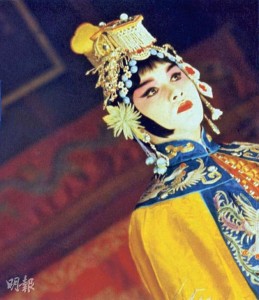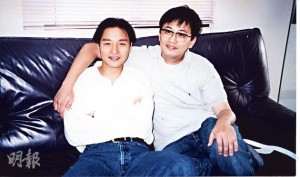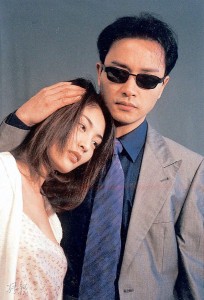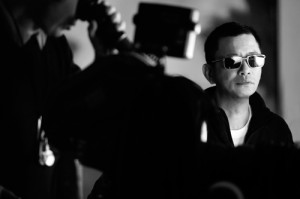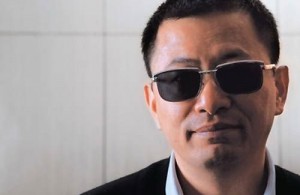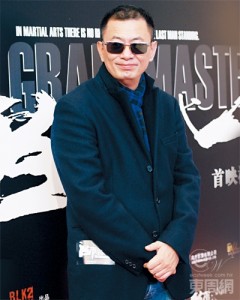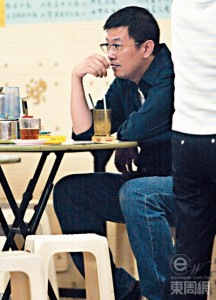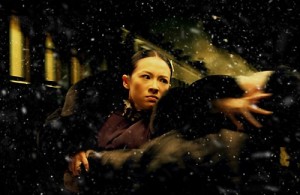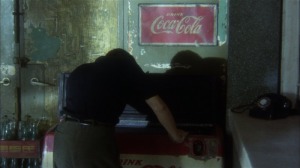Wong Kar Wai’s anticipated film, ‘The Grandmaster’, is now finally playing in theaters. The martial arts movie is a yet another biopic of the Wing Chun master, Ip Man, and is the fourth Ip Man feature film to be released in the last six years. ‘The Grandmaster’, however, is unrelated to Wilson Yip’s highly successful Ip Man trilogy, the series that started the current Ip Man and Wing Chun trend. In fact, Wong’s idea to make a biopic for the legendary martial artist was conceived more than a decade ago, when he was working on his 1997 film, ‘Happy Together’.
Known for his slow-paced art films, Wong’s productions never coincided well with mainstream cinema. His announcement on ‘The Grandmaster’ project pricked up ears, but despite past skepticism on Wong’s ability to do action cinematography, ‘The Grandmaster’ has been a box office success, and has become Wong’s highest grossing film of his career.
Wong is now an internationally acclaimed and award-winning director, but there is no such thing as overnight success. Although Wong was immediately propelled to stardom after the release of his debut feature film, ‘As Tears Go By’, in 1988, the long-awaited stardom took many years of blood, sweat, and tears.
Born in Shanghai, Wong and his family emigrated to Hong Kong when he was five years old. His family was not wealthy. Wong’s father was a sailor, and rarely had the opportunity to stay at home with his wife and son. Soon afterwards, Wong’s father found a job as a hotel manager in Malaysia, leaving Wong and his mother behind in Hong Kong. At the time, Wong’s mother used to bring him to the theaters every day to watch movies, which allegedly contributed to his interest in filmmaking.
Wong graduated from Hong Kong Polytechnic University in 1980, majoring in graphic design. After his graduation, Wong briefly worked as a sales clerk in a clothing store. In 1981, Wong auditioned for TVB’s scriptwriting class, where he met his wife Chan Yi Kan, a variety program producer for the television station.
Wong struggled as a scriptwriter during his days with TVB. Chan then encouraged Wong to leave the station to focus on directing and writing his own films. After Chan’s many long meetings with various film distributors and investors, Wong’s debut film, ‘As Tears Go By’, was finally released in 1988 by In-Gear Film Production. Chan also produced the film. ‘As Tears Go By’ was a critical and box office success. Grossing over $11 million HKD in the Hong Kong box office, the film received ten nominations at the 8th Hong Kong Film Awards, and won two awards.
Wong’s second film in 1990, ‘Days of Being Wild’, was an even greater critical success, receiving nine HKFA nominations and winning five, including Best Picture, Best Director for Wong, and Best Actor for Leslie Cheung. However, it was Wong’s 2000 film, ‘In the Mood for Love’ that shot Wong to international acclaim.
Wong, Chan, and their 16-year-old son currently reside in a million-dollar house in Repulse Bay. The low-key director is often seen eating in outdoor restaurants around the neighborhood. Wong’s son physically resembles a young Tony Leung, which may be a reason as to why Wong frequently collaborates with the actor.
After two weeks of release, ‘The Grandmaster’ has already earned 252 million RMB. The great care in which Wong Kar-wai took with each frame of the film, the props detail, and the action choreography were evident, resulting in a film of great visual beauty and precision.
‘The Grandmaster’ will be the opening film at the 63rd Berlin International Film Festival, which will take place in February. Wong denied earlier rumors that there will be a four-hour director’s cut of The Grandmaster, but acknowledged he is currently editing a different international edition containing slightly different content from the mainland Chinese version.
